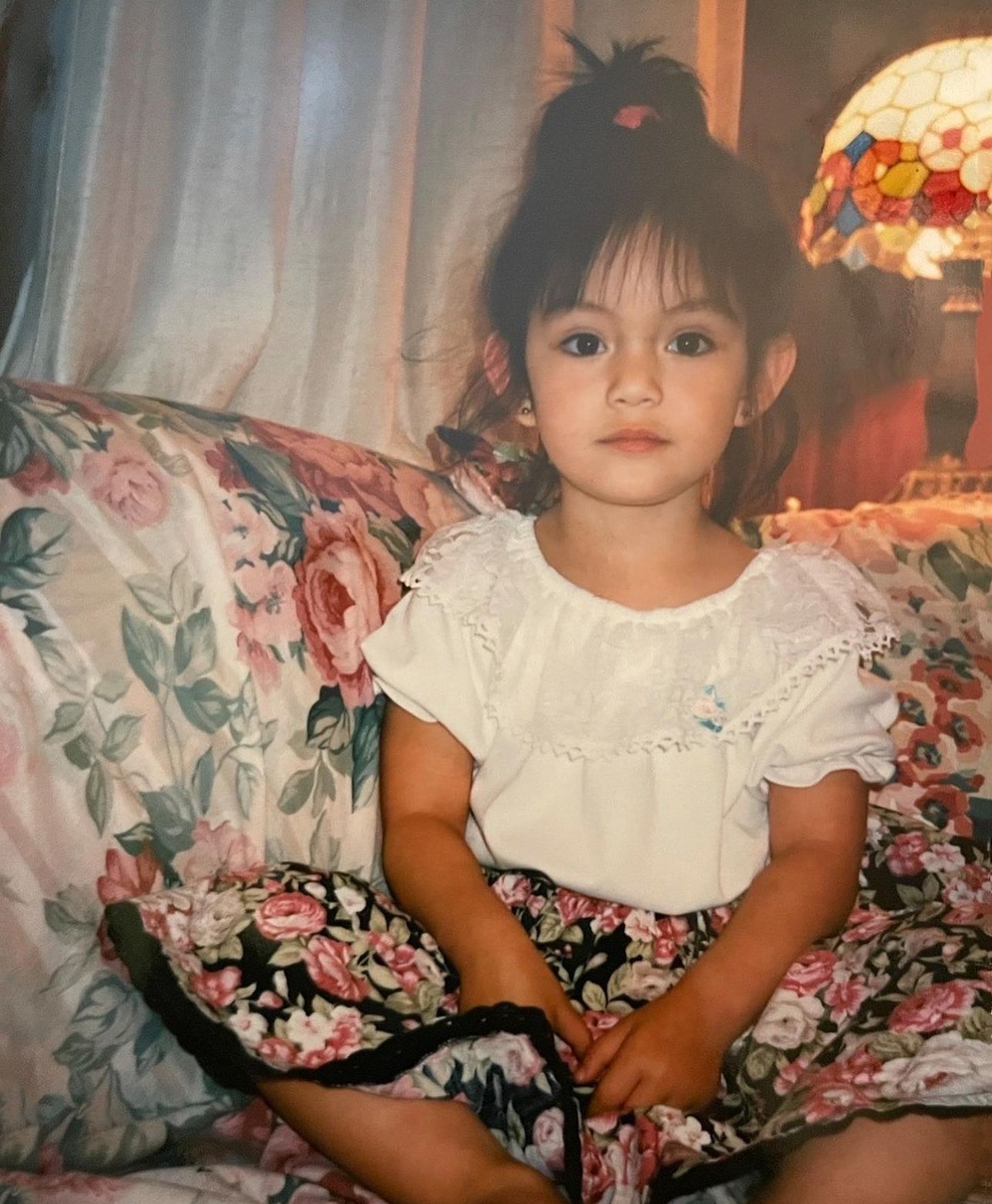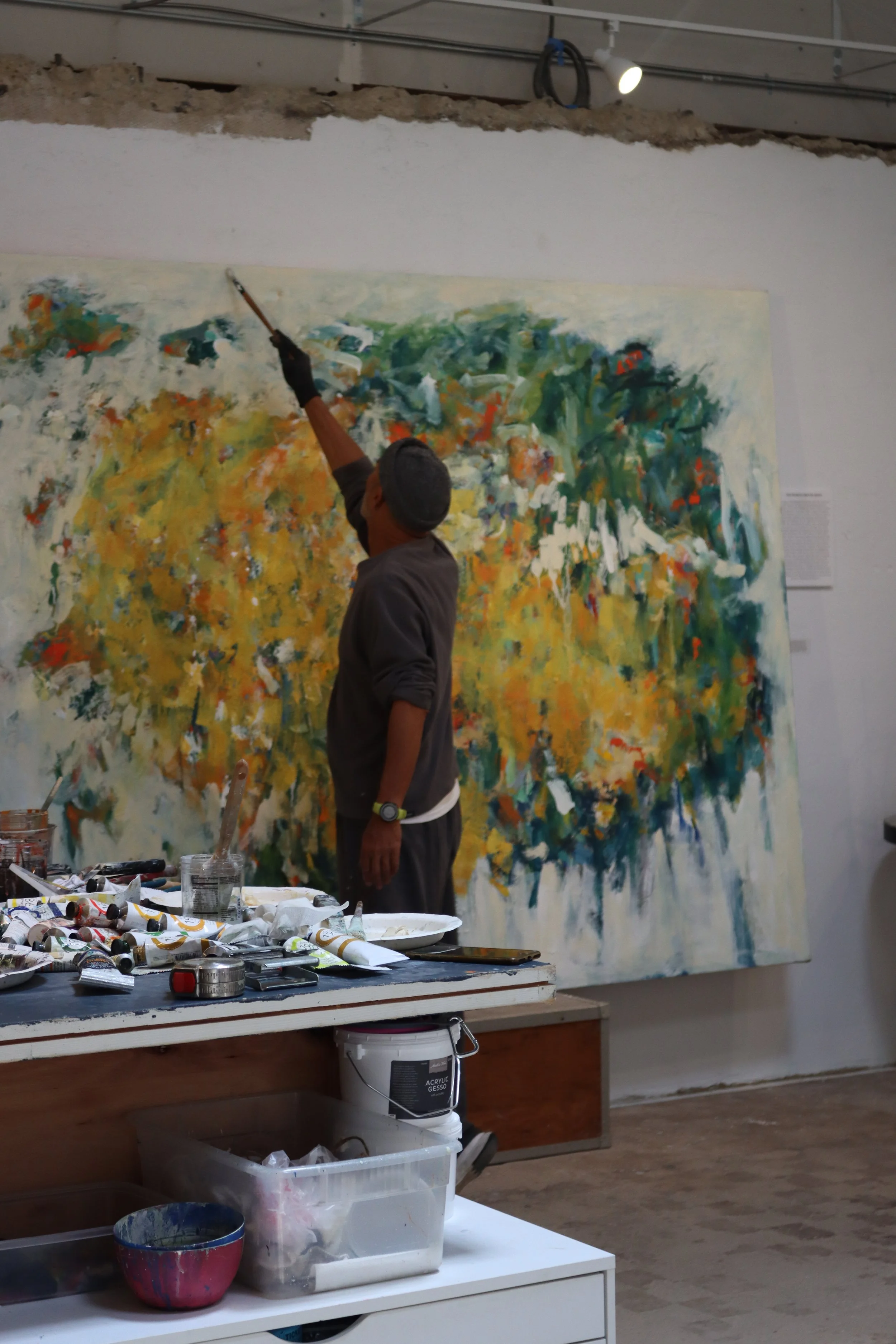Rhythms of Resilience | Meet SF Based Filipina-Irish Artist Ouida
San Francisco-based Filipina-Irish artist, Samantha Hyland, more famously known as Ouida, blends her musical influences from pop, jazz, alternative R&B with soulful lyricism rooted in her passion for self-realization, activism and the universal themes of love and empowerment. We sit down with her as she tells us about her journey and the evolution of her music.
Ouida grew up in the Portola District of San Francisco. Her neighborhood was filled with a mix of different ethnicities and backgrounds, a melting pot of families from all over the globe. Ouida’s early life consisted of attending a Catholic school, where she read for mass, dancing at the West Lake School of Performing Arts, taking ballet classes, and enjoying the beautiful music that often filled the house. In short, her life revolved around creativity.
Despite being nearly 7,000 miles from the Philippines, Ouida’s family maintained a very Filipino home. Her mom, who was born in Makati, gave birth to all 5 of Ouida’s siblings in Manila. She immigrated with two of her children to the United States, who went on to grow up with Ouida in California. Her father, on the other hand, was Irish American and part Filipino. Being in a multicultural household did not prevent the rich culture and customs of the Philippines to make its way to their lives in San Francisco.
“My siblings and I all had different relationships to the elements of Filipino culture in our household as it pertains to growing up in America and having an American experience. But for the most part, it’s safe to say that it was a very Filipino household and that I don’t think there was much more exploring within the context of what it means to be Filipino, at least for myself, until I was in college. It really was during that time that I was wanting to know more about pre-colonial art-like textiles and just cultural practices. But even looking at the Asian art museum or places that you would expect to find that information, background, context, and knowledge, there was a severe gap in historical Filipino artifacts and histories. I think for me, seeing that absence really pushed me to look for answers and people that could better help me understand and feel connected to our heritage,” she shared.
Ouida’s education journey was nothing short of a rollercoaster ride. Despite her outgoing-ness, she considered herself a loner and admitted to having a difficult time finding people on the same wavelength as her. It was her love for music and passion to pursue it that kept her sane through the ups and downs of navigating through school. “I really dived, starting at 9 years old, into songwriting and using that as an outlet for the storm of emotions that I was going through. I had always been such a sensitive child and I think going to a school and having challenges around making or keeping friends and finding people who valued the same interests I had made it where it could feel lonely. Music for me was a way not just to pass the time as an only child in the house after my siblings moved out but as a way to really explore those feelings that I felt like there was no-one to talk to.”
In school, Ouida often faced obstacles surrounding race and appearance. As like many other multicultural children, she had come across a lot of questioning and criticism around how she identified and her cultural background.
“In elementary school I was one of the few students that presented as caucasian typically. Even though there were a lot of Filipinos in my school, there was still this feeling for me that I was outside of what was the norm. Going into high school was a different experience because it totally flipped. Then I was not the white girl, I was the mixed asian girl. I think my experiences through elementary and going into high school were definitely a learning experience about race and how my mixed identity has its own demographic interacts of people of full descent of a particular heritage and really forced me to have a dialectical perspective of race, culture, religion, and I became hyper aware of my place in any of these circles, if I even had a place.”
Heading into college, Ouida learned to overcome the many obstacles that stood in her way of getting into a good school. She found herself getting accepted into a number of quality, prestigious colleges that she had put a lot of effort into but could not afford due to her family’s financial situation. However, that didn’t stop Ouida. Eventually, she got accepted into Clive Davis Institute of Recorded Music at The New York University (NYU) Tisch School of the Arts. Ouida deferred for a year, moved to the Big Apple, and tried her best to learn how to survive in the city that never sleeps. She performed in bars and played in bands in Queens for a whole year before enrolling in NYU. Once enrolled, Ouida found herself roaming the same halls as music icons like Maggie Rogers, Raveena Aurora, and Topaz Jones, all of whom were in the year above her. However, after some time as a college student in New York, Ouida faced yet another hardship; dropping out of art school.
Despite her best efforts to stay at NYU, meeting with the dean and speaking with heads of her department, Ouida was forced to face the music and leave New York. The transition back to the other side of the United States opened up her eyes to a whole new world of reflection. She ultimately decided to learn Sociology at the City College of San Francisco and UC Berkeley, where went on to finish up her studies and graduate.
“I think my interest at the time was really to marry my creative interests with my desire to be part of social impact and continue exploring identity as it pertains to race specifically. It wasn’t until I graduated pretty much immediately after that I began to really put my focus into my music and creating music videos that were the social impact questions and putting them to my music,” mentioned Ouida.
When asked if she had ever experienced any racial discrimination or microaggressions, she shared, “I have definitely experienced criticism, discrimination, and fetishization as a Filipina woman and as an Asian American. I use the Asian American term, because in the context of people stereotyping me and attaching certain behaviors or ways of presenting the instance that really comes to mind is when I was 18 years old. I had my very first music manager, who I was introduced to through music colleagues, who had a fairly successful roster of past artists that she had worked with, people who had become household names. So initially there was a lot of trust in her and her ability to advocate for me. In the process, after signing off on looking for publishing deals and investors for projects that we were working on, she pulled me aside and in a very casual way instructed me to not tell people I was Asian American or that I am of Filipino descent because “Asians don’t sell”. I think the reason she said this so casually was because, especially during that time, that kind of rhetoric was a common place. She felt emboldened to say those things on behalf of the music industry because she felt like it was common knowledge. It was a fact in her eyes that statistically Asians don’t sell.”
Ouida learned to recognize her privilege; her ability to phenotypically present in ways that would work to her advantage. She decided to look beyond the accolades of her former manager and stand firm in her truth. It wasn’t long until she parted ways with her and decided to venture out on her own. However, due to being contractually binded with her, Ouida missed out on opportunities to further her career.
Much like Taylor Swift, Prince, and many other artists, Ouida had her fair share of losing ownership of her songs. When a publishing agreement with investors went south, she found herself in a tricky situation.
“I felt that there was a very integral part of me being attacked. It was the part where I found solace and safety, a sense of true belonging and a place for expressing my identity. I felt like my hands were tied. I began a relationship with folks at Sony Music. An executive there recommended a manager to me. The manager put me in touch with a lawyer that she worked with regularly that would hold my hand in getting out of the deals and the contracts that I was still in so that I’d be free to work with them. It was so heartbreaking for me that my life and my dreams of being a recording artist were put on pause and were at the hands and mercy of someone else.”
Many years later, things are looking up. Since signing with Bolo Music Group this year, Ouida has found a new home in her label. Beyond being in the presence of fellow proud Filipino Americans artists, she has had the opportunity to collaborate with multiple members of the team. Recently, she collaborated with Co-Founder/CEO of Bolo Music Group, Ruby Ibarra on her song “Bakunawa”, which is set to be released in Ruby’s highly anticipated Sophomore album. In addition to this, Ouida and her fellow Bolo artists have rocked major stages like that of Undiscovered SF, where the launch of the label took place, and Spotify, where the artists were introduced to the Filipino American community in Los Angeles.
“I think often people want to make sense of most things in life by categorizing and putting people into one box and I think having a mixed race identity, I’ve kind of seen it time and time again that it's difficult to exist on the border of those boxes. Oftentimes, you have to just create your own space to be allowed to celebrate two different heritages or two different ways of life. In my exploration of my Filipino identity and wanting to celebrate the only culture that I really have a sense of identity with, I have experienced feeling like an outsider to it and that I wasn’t allowed to take up space and claim that experience, but being part of Bolo Music Group on that journey of me taking up space and owning who I am has been very affirming and welcoming of my efforts there,” she mentioned.
When asked what advice she would give to those that wish to follow in her footsteps, Ouida shared, “At the end of the day, whether its making money or not, whether other people believe in it or not, whether it becomes a career or not, your sense of safety and solace in this craft is the most important thing. You can’t let anyone ever take that away from you. It’s something really beautiful that you’ve been given, that you have something that you can center yourself around and learn about yourself through. At the end of the day, the most important part is staying true to your why and enjoying what you do as much as you can. There will be really un-fun things to do. But it all feels worth it if you’re still connected to your why.”



















When the Avengers: Doomsday one-year countdown dropped, audiences didn’t just watch. They paused, replayed, shared, and even speculated about hidden messages. A week later, the clip surpassed 14 million views, becoming a viral moment picked up across major media outlets that fueled anticipation for the next chapter of the Marvel Universe.
The countdown video was the result of a collaborative effort led by AGBO and its studio partners. Supporting the marketing team as a contracted editor was Joshua Ortiz (@joshuajortiz), a Filipino American filmmaker whose career has steadily built toward opportunities to contribute to projects of this scale, alongside earlier success with the short films he has written and directed.